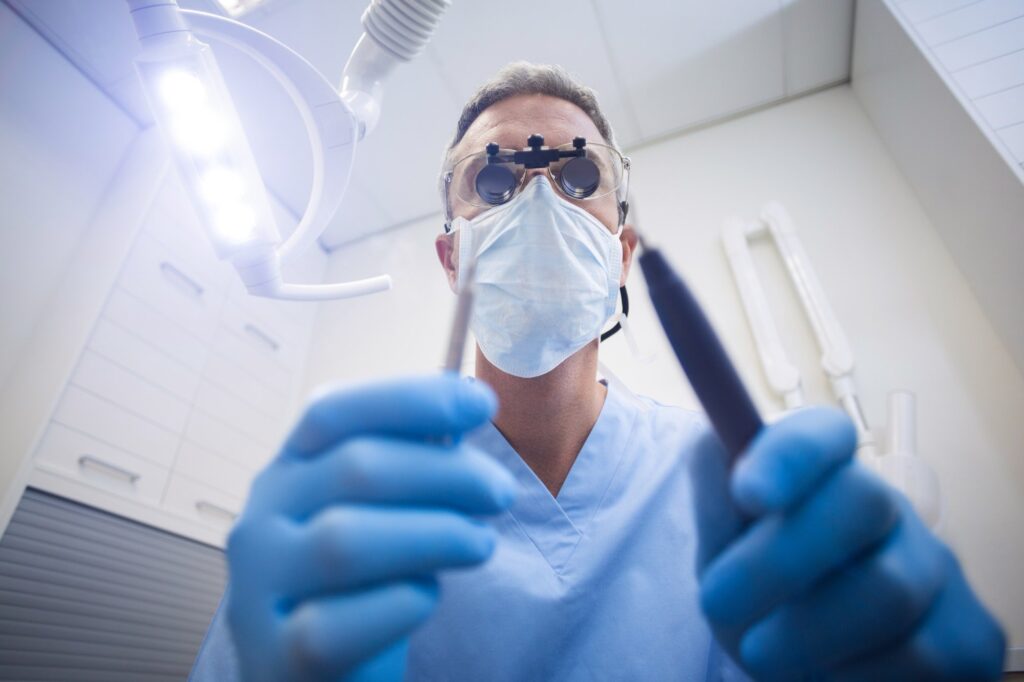You’re brushing your teeth and realize you’ve run out of your usual toothpaste. The only option in the cabinet? Your child’s bubblegum-flavored toothpaste. You might wonder: Can adults use kids toothpaste? Is it safe—and more importantly—is it effective?
At Casey Dental, we get this question more often than you might expect. Here’s what you need to know about the ingredients, differences, and when it’s okay for an adult to use toothpaste made for kids.
What’s the Difference Between Adult and Kids Toothpaste?
The main differences between children’s and adult toothpaste usually come down to:
- Fluoride content
- Abrasiveness
- Flavoring and additives
1. Fluoride Levels
Adult toothpaste typically contains 1,000 to 1,500 ppm of fluoride, which is the active ingredient that helps prevent cavities by strengthening enamel. Kids toothpaste—especially for toddlers or younger children—may contain little to no fluoride, depending on the age group it’s intended for. That’s because children under age six are more likely to swallow toothpaste, and ingesting too much fluoride can cause dental fluorosis (a cosmetic issue in developing teeth).
2. Abrasiveness
Many adult toothpaste formulas include mild abrasives to help remove stains from coffee, wine, or tobacco. Children’s toothpaste is generally less abrasive to protect developing enamel in young teeth. While this makes it gentler, it may be less effective for adult needs like plaque control and stain removal.
3. Flavor and Additives
Kids toothpaste is often designed to taste sweet and fruity—think bubblegum or strawberry. Adult formulas tend to lean toward minty, fresh flavors that offer a longer-lasting clean feeling. Some kids toothpaste may also lack additional features like tartar control or sensitivity relief.
So, Can Adults Use Kids Toothpaste?
Yes—but with limitations.
If you’re in a pinch and need to brush your teeth, using kids toothpaste occasionally won’t harm your oral health. However, if it lacks adequate fluoride or the strength to remove adult-level plaque and stains, it shouldn’t be your everyday solution.
If the children’s toothpaste contains the recommended amount of fluoride (around 1,000 ppm or more), it can be an acceptable short-term substitute. But for long-term oral health—especially if you have concerns like tooth sensitivity, tartar buildup, or enamel erosion—it’s better to stick with a formula designed for adults.
Who Might Benefit from Using Kids Toothpaste?
There are some cases where kids toothpaste may actually be a good fit for adults:
- Adults with sensitive teeth: Gentler formulas can be soothing.
- Those who dislike strong minty flavors: Kids toothpaste offers milder options.
- Individuals undergoing cancer treatment: These patients may be advised to use less abrasive, low-foaming formulas.
Still, it’s important to discuss any oral health needs with your dentist to ensure you’re using the right products.
What We Recommend at Casey Dental
At Casey Dental, we recommend choosing toothpaste that suits your specific dental needs. If you’re using your child’s toothpaste regularly, it might be time to evaluate why. Are you avoiding fluoride? Do strong flavors bother you? Are you unsure what’s right for your enamel?
Let us help. We offer personalized dental product recommendations during your hygiene visits and can help guide you to the most effective and comfortable toothpaste for your lifestyle.
Final Thoughts
So, can adults use kids toothpaste? Yes—but it’s not ideal for long-term use unless it meets certain criteria. If you find yourself reaching for it often, it’s a good idea to talk to your dental team about better options.
Need guidance on the right toothpaste for your oral health? Contact Casey Dental today to schedule a consultation. We’re here to help you smile with confidence.


